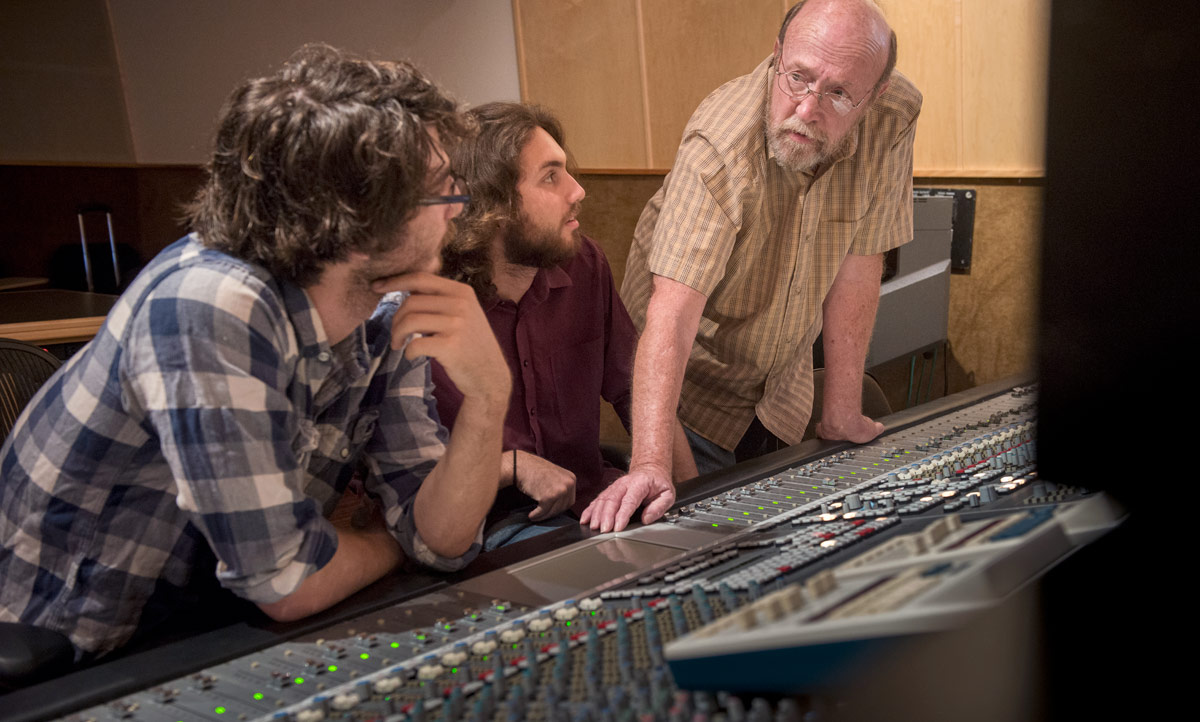
How to Plan Your Career in Music after College
By Kyle Sparkman

Graduating from college is bittersweet. Classes are over yet now you need to choose what you want to do with the rest of your life!
Kind of scary, right? If you’re reading this because you’re determined to pursue a music-related career, congratulations! You have a better idea than most graduates do when they leave school.
If you look at the Music Professions Index, you’ll see there’s a variety of careers related to music available. Because each music career requires a unique skill set it is important to spend time figuring out which path is right for you. Today we’re going to help you choose from the seemingly endless career paths in music.
Understand Your Professional Goals
This is the first step you should take, even if you aren’t sure exactly what you want to do. By taking an honest inventory of your skills and weaknesses, you can identify potential career paths, set SMART goals, and build a roadmap to a successful career.
Let’s take a look at some of the traditional career paths in music.
Performance Careers
Examples: Singer-Songwriter, Orchestral or Choral Musician, Studio Musician, Church Musician
This is the most popular career path among aspiring musicians. It’s also the hardest to break into. While different performance-based careers require different skill sets, they all demand the principal ability to perform under pressure.
Some performance careers have a clear path to take if you want to pursue them. For example, if you want to be an orchestral musician, you’ll most likely need to get a Master’s Degree in Performance, align yourself with the right professors, and audition as much as possible.
Most performance careers, however, have a much less defined path to success. For someone who aspires to become a touring musician, networking and connections are arguably just as important as performance ability. Branching out to explore other ways to supplement a performance career might include teaching music lessons, performing in the community, getting involved in the music industry, composing and arranging music, or entrepreneurial work.
Although the path to a successful performance career is often less clear than other career paths, there are still goals you can set to put yourself on the track to success. Study the actions of other successful and upcoming performers. See what they did to get where they are, and set similar goals for yourself.

Music Industry Careers
Examples: Artist Manager, Music Journalist, Internet Music Distributor
The music industry is evolving at a blistering pace. Consuming and creating music is easier than ever, and innovation from tech startups has created jobs that were previously unimaginable. From marketing and management to software development and data analytics, there is truly a place in the music industry for every skillset.
If you’re interested in a career in the music industry, it’s important to know both the traditional and current way of doing things. Staying informed on current trends and adapting to the dizzying evolution of the market is necessary to be competitive. People who master specialized skills can create valuable positions for themselves in this ever-changing industry.

Internships are a great way to break into the music industry, especially if you want to work for a larger label or firm. Do your research to make sure the internships you’re considering offer experience in areas relevant to a potential career.
Ross Lindly, a USC Thornton Music Industry alumn, is a great example of how determined undergraduate students can build their career in music through internships and part-time jobs in the Los Angeles music industry before they graduate.
Music Teaching Careers
Examples: Private Studio Teacher, Music Coach, School Teacher, Education Consultant
If you have great interpersonal skills, love kids, and enjoy passing the gift of music to others, a music teaching career may be for you. Almost every musician can point to a teacher who inspired them to elevate their playing, and the job market for teachers is relatively steady.
Students interested in music teaching can study music education as undergraduates, get involved in community music programs to build music teaching experience, or apply for a Master’s Degree in Music Teaching & Learning to hone advanced music pedagogy skills to educate LA’s diverse population of music students.
Community Music Careers
Examples: Community Music Facilitator, Music Therapist, Arts Education Coordinator
A career in community music requires a hybrid of educational theory and management know-how. From after-school programs for at-risk youth to music therapy for the disadvantaged, community music programs help people of all different backgrounds. People suited for careers in community music programs are service-oriented and enjoy working with others. The best way to get involved with community music is to volunteer at local community music programs as an undergraduate. Community Arts organizations frequently hire interns as well.
Laura Reynolds, a USC Thornton graduate with a degree in French horn performance, was midway through a performance master’s degree at a music conservatory when her career took a U-turn. Reynolds, who was heavily involved in community music programs at Thornton, opted to enroll in a summer business school program at Stanford University and take a community engagement position with a local chorus. Now, after a few years of hard work Reynolds is the Director of Education and Community Engagement for the Seattle Symphony.

Music Entrepreneurship
Examples: Artist Manager, Record Label Owner, Non-Profit Arts Administrator
More often than not, there is stiff competition for careers in the music industry. Entrepreneurial skills can be used to create your own career in any area of music. If you’re an entrepreneur or have an idea for a non-traditional career in music, start as soon as possible and align yourself with like-minded people.
Mak Grgić MM ’12, DMA ’16, is a tremendous example of what it means to be an entrepreneur in music. Grgić, with support from Thornton faculty and the Arts Leadership program, has founded multiple music programs in Los Angeles and abroad.
Get Started Today
It’s never too early to start pursuing your career in music, especially if you’re an undergraduate in college.
Talk to Professors
Talk to professors in your field of interest for guidance and advice; they’ll be happy to talk with you and help someone showing initiative and interest in their work. The career center is another valuable resource for exploring your interests and identifying potential careers.
Pursue an Internship
Pursue an internship that will give you relevant work experience. Internships offer students a valuable way to earn money or college credit, strengthen their resume, and make valuable connections. Internships are one of the best ways to experience the reality of the career path you’re pursuing.
Earn a Master’s Degree in Music
USC’s professional master’s degrees in music offer instruction from industry experts and are designed to make you a competitive candidate in your field.
Start an Entrepreneurial Venture
Start an entrepreneurial venture while you’re still in school. Need some help getting started? Here are 101 ways to make money as a musician from the team at DIY Musician.
Start a band, write album and concert reviews, work with local artists, promote for a promising performer, or do whatever sparks your interest as an artist or entrepreneur. The experience you’ll gain will be invaluable.
Learn more about Thornton’s Professional Master’s Degree Programs




